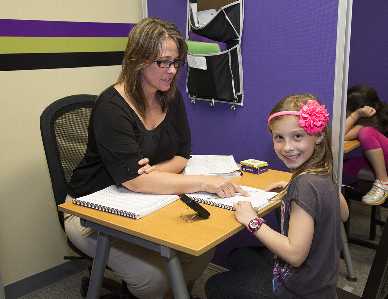- Sections :
- Crime & Public Safety
- Restaurants & Food
- Sports
- More
Categories
The Woodlands LearningRx suggests building brain power the fun way

THE WOODLANDS, Texas – Don’t mistake the hours your child spends playing a game of pretend as wasted time.
Building better brains through play
Scientists are actually finding that free play – with no rules or moderators – is essential to the development of the brain.
Kim Bellini, owner and director of The Woodlands LearningRx, said that studies have shown that unstructured play – from wrestling to tea parties – helps the brain build new circuits, which later aid in social interactions and even schoolwork.
“We can actually take advantage of children’s natural way of learning to ensure they have the highest level of success in life,” she said. “Play is a great way for children to learn to socialize, harness their creativity and discover their personal interests.”
Parents can help by creating a fun environment – and encouraging children to put down electronic devices and pick up their imaginations, Bellini explained.
Following is some of Bellini’s advice for promoting creative play:
• Make space for artistic experimentation. Set up a table with all types of art supplies and cover the floor with a drop cloth. Your child should have an opportunity to choose from among pencils, chalk, paint or collage. Create a gallery wall nearby where budding artists can display their finished pieces.
• Promote a little drama. A dress-up trunk filled with old clothes, jewelry, crowns and wigs can be all the spark needed for a pop-up theater troupe. Or turn a large cardboard box into a puppet theater. Older children may want to use a digital device to make their own films. Talk to them about staging one of their favorite stories, writing their own episode of a frequently watched television show or reinterpreting a movie.
• Build and construct. Children enjoy blocks of all types. Keep a few wooden blocks, Legos or even cardboard tubes around for them to pile up and construct their own worlds.
• Make it a game. Bellini said classic games – checkers, chess, Scrabble and jigsaw puzzles – build cognitive skills. She also suggests making your own games. For example, give children four words that rhyme and ask them to create a poem, or ask them to visualize words, write each letter with their fingers in the air or then spell backwards. Another great game is 20 Questions: Think of a familiar person or object and give the child 20 chances to ask yes or no questions. To help them improve their logic and reasoning, teach them to strategize by using questions that will significantly narrow down the categories.
• Go on an adventure by opening a book. Create a reading nook – a special place where your child can escape to the world of literature. Ask them which subjects interest them, and find books or magazines on those topics. Keep a stack of great books handy.
“Children learn the most when they are having fun,” Bellini said. “Any time you can help create a game or an adventure that stimulates young minds is a great opportunity to build problem-solving skills, develop critical thinking and promote social skills.”
The Woodlands LearningRx offers one-on-one, customized brain-training to help strengthen specific cognitive skills. The center, located at 10857 Kuykendahl Road, Ste. 240, transforms the ability to learn at a core, cognitive level. To learn more, call 832-482-3082 or visit learningrx.com/the-woodlands or woodlandsenespanol.com/directorios/perfil/learningrx-the-woodlands.
Comments •















